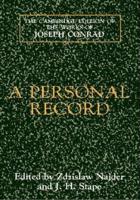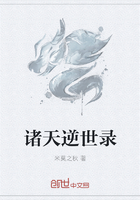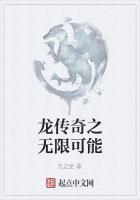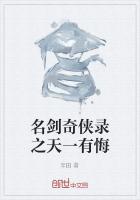After Cowperwood had once more given his address, age, profession, whether he knew any trade, etc.--which he did not--he was allowed to return to the bathroom, and put on the clothing which the prison provided for him--first the rough, prickly underwear, then the cheap soft roll-collar, white-cotton shirt, then the thick bluish-gray cotton socks of a quality such as he had never worn in his life, and over these a pair of indescribable rough-leather clogs, which felt to his feet as though they were made of wood or iron--oily and heavy. He then drew on the shapeless, baggy trousers with their telltale stripes, and over his arms and chest the loose-cut shapeless coat and waistcoat. He felt and knew of course that he looked very strange, wretched. And as he stepped out into the overseer's room again he experienced a peculiar sense of depression, a gone feeling which before this had not assailed him and which now he did his best to conceal. This, then, was what society did to the criminal, he thought to himself. It took him and tore away from his body and his life the habiliments of his proper state and left him these. He felt sad and grim, and, try as he would--he could not help showing it for a moment. It was always his business and his intention to conceal his real feelings, but now it was not quite possible. He felt degraded, impossible, in these clothes, and he knew that he looked it. Nevertheless, he did his best to pull himself together and look unconcerned, willing, obedient, considerate of those above him. After all, he said to himself, it was all a play of sorts, a dream even, if one chose to view it so, a miasma even, from which, in the course of time and with a little luck one might emerge safely enough. He hoped so. It could not last. He was only acting a strange, unfamiliar part on the stage, this stage of life that he knew so well.
Kendall did not waste any time looking at him, however. He merely said to his assistant, "See if you can find a cap for him," and the latter, going to a closet containing numbered shelves, took down a cap--a high-crowned, straight-visored, shabby, striped affair which Cowperwood was asked to try on. It fitted well enough, slipping down close over his ears, and he thought that now his indignities must be about complete. What could be added? There could be no more of these disconcerting accoutrements. But he was mistaken. "Now, Kuby, you take him to Mr. Chapin," said Kendall.
Kuby understood. He went back into the wash-room and produced what Cowperwood had heard of but never before seen--a blue-and-white-striped cotton bag about half the length of an ordinary pillow-case and half again as wide, which Kuby now unfolded and shook out as he came toward him. It was a custom. The use of this hood, dating from the earliest days of the prison, was intended to prevent a sense of location and direction and thereby obviate any attempt to escape. Thereafter during all his stay he was not supposed to walk with or talk to or see another prisoner--not even to converse with his superiors, unless addressed. It was a grim theory, and yet one definitely enforced here, although as he was to learn later even this could be modified here.
"You'll have to put this on," Kuby said, and opened it in such a way that it could be put over Cowperwood's head.
Cowperwood understood. He had heard of it in some way, in times past. He was a little shocked--looked at it first with a touch of real surprise, but a moment after lifted his hands and helped pull it down.
"Never mind," cautioned the guard, "put your hands down. I'll get it over."
Cowperwood dropped his arms. When it was fully on, it came to about his chest, giving him little means of seeing anything. He felt very strange, very humiliated, very downcast. This ****** thing of a blue-and-white striped bag over his head almost cost him his sense of self-possession. Why could not they have spared him this last indignity, he thought?
"This way," said his attendant, and he was led out to where he could not say.
"If you hold it out in front you can see to walk," said his guide; and Cowperwood pulled it out, thus being able to discern his feet and a portion of the floor below. He was thus conducted--seeing nothing in his transit--down a short walk, then through a long corridor, then through a room of uniformed guards, and finally up a narrow flight of iron steps, leading to the overseer's office on the second floor of one of the two-tier blocks. There, he heard the voice of Kuby saying: "Mr. Chapin, here's another prisoner for you from Mr. Kendall."
"I'll be there in a minute," came a peculiarly pleasant voice from the distance. Presently a big, heavy hand closed about his arm, and he was conducted still further.
"You hain't got far to go now," the voice said, "and then I'll take that bag off," and Cowperwood felt for some reason a sense of sympathy, perhaps--as though he would choke. The further steps were not many.
A cell door was reached and unlocked by the inserting of a great iron key. It was swung open, and the same big hand guided him through. A moment later the bag was pulled easily from his head, and he saw that he was in a narrow, whitewashed cell, rather dim, windowless, but lighted from the top by a small skylight of frosted glass three and one half feet long by four inches wide. For a night light there was a tin-bodied lamp swinging from a hook near the middle of one of the side walls. A rough iron cot, furnished with a straw mattress and two pairs of dark blue, probably unwashed blankets, stood in one corner. There was a hydrant and small sink in another. A small shelf occupied the wall opposite the bed. A plain wooden chair with a homely round back stood at the foot of the bed, and a fairly serviceable broom was standing in one corner.















